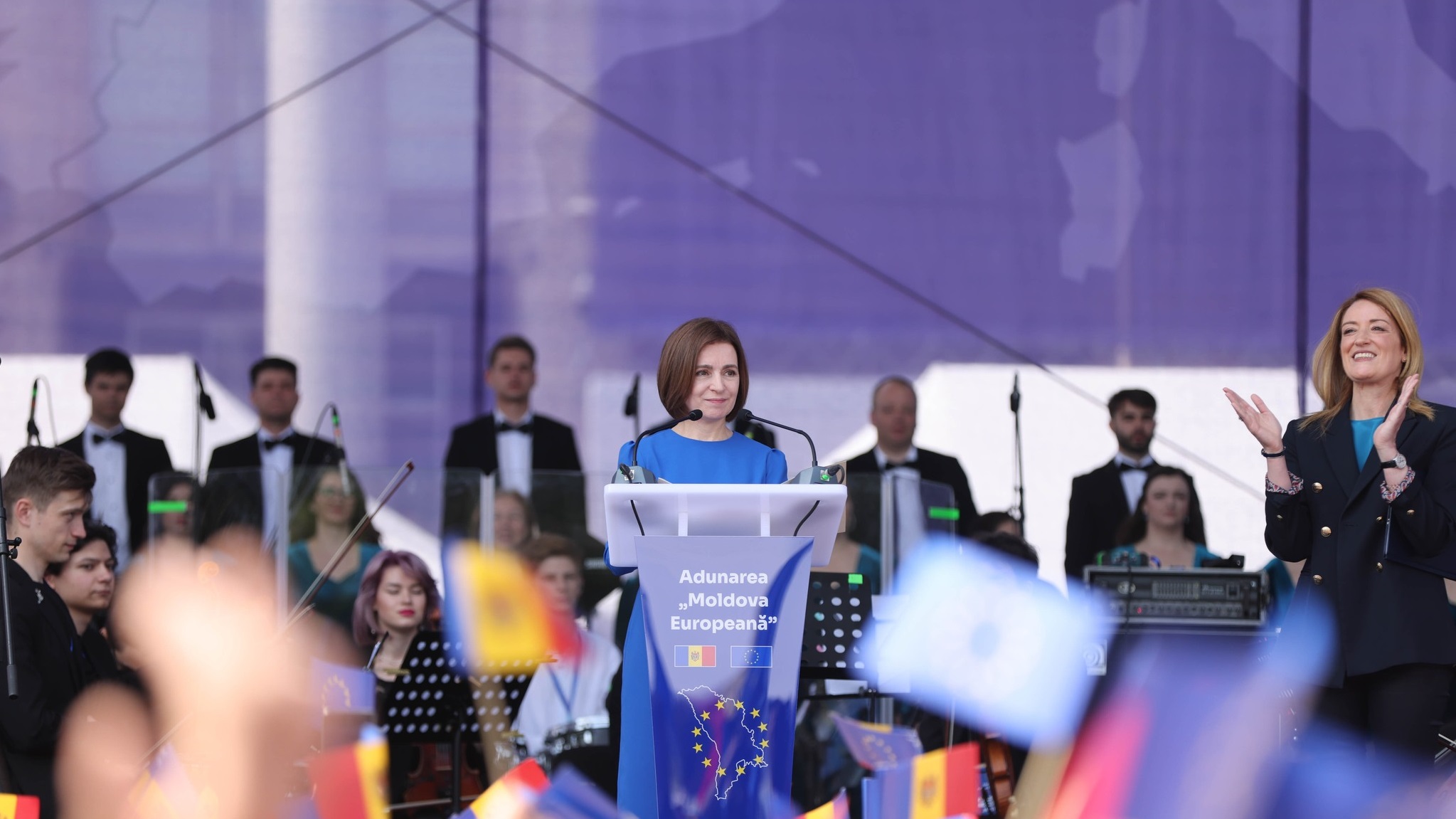Political tensions in Moldova escalating as the government intensifies its campaign for EU membership, disregarding criticism from the opposition. On Tuesday, May 23, the Party of Socialists of the Republic of Moldova (PSRM) and the Party of Communists of the Republic of Moldova (PCRM), which together form the Bloc of Communists and Socialists (BECS) coalition in the parliament, slammed the government’s pro-EU policies as detrimental to the nation’s unity, sovereignty, and prosperity.
On Sunday, May 21, a major rally was held in the capital Chisinau by incumbent President Maia Sandu and her Party of Action and Solidarity (PAS), seeking support to make constitutional amendments to integrate the post-Soviet Republic into the EU. Opposing such moves, Euro-skeptic groups and the SOR party organized widespread protest rallies across the country and demanded a referendum on foreign policy.
On May 15, the head of the Moldovan parliament, Igor Grosu from PAS, announced the initiation of Moldova’s withdrawal from the Parliamentary Assembly of the Commonwealth of Independent States (CIS), an intergovernmental political and economic cooperation forum founded by the post-Soviet Republics in Asia and Europe.
The EU’s ongoing attempts to integrate post-Soviet and post-Yugoslav Republics to advance its economic, political, and strategic interests has already led to political instability and social unrest. The goal of EU membership that is pushed by certain pro-EU political groups and their followers in these countries has resulted in divisions and conflicts.
A significant section of the population of many of the post-Soviet Republics wants to remain in the CIS. The EU-NATO strategy to take control of the region using pro-EU and Russophobic political groups has sparked protests and conflicts in several countries. One such long-running conflict escalated into the full-fledged war in Ukraine. Protests are also underway in North Macedonia against the proposed constitutional amendments to secure EU membership.
In the backdrop of the war in Ukraine, by stoking Russophobia, Sandu and her government intensified the pursuit for EU membership last year, which has been advertised as the solution to all problems faced by the people of the country. Sandu also derided anti-government protesters as pro-Russian saboteurs.
On the other hand, communists and socialists have pointed out the benefits of participation in the CIS, especially with respect to export of Moldovan agricultural products and remittances received from other CIS countries. They also accused other EU countries of treating the East European member states as a source of cheap labor, and also of fostering exploitation of their natural resources by big business.
On May 23, the leadership of the Party of Socialists of the Republic of Moldova (PSRM) told the media that “In 2022, the crisis year, Moldova doubled the export of goods to CIS partners like Kazakhstan, which is a very important partner for us. Exports of Moldovan goods to Kyrgyzstan and Armenia increased three times, exports to Turkmenistan increased 2.5 times, and one-third to Belarus.”
“Authorities believe that their statements are much more important than the bread that our citizens earn with hard work. In conclusion, I want to tell all advocates of integration with the EU, including those who took part in the PDS party parade on Sunday, that there is not a single request from the EU authorities that the Republic of Moldova terminate its agreements with the CIS. These are the ‘inventions’ of the PAS. The statements of Sandu and PAS are costly for the national economy and the citizens of Moldova.”
According to reports, approval ratings of Sandu and the PAS government are dipping due to rising political tensions, failure to tackle double-digit inflation rates (18.1% in April 2023), the energy crisis, and widespread corruption.





